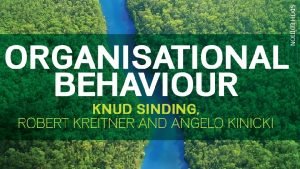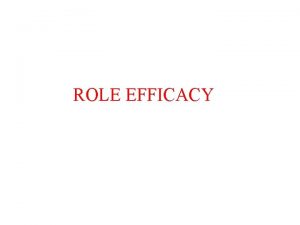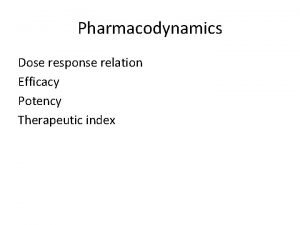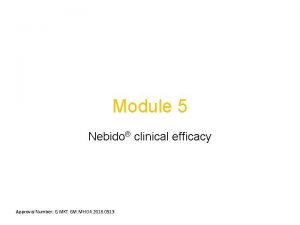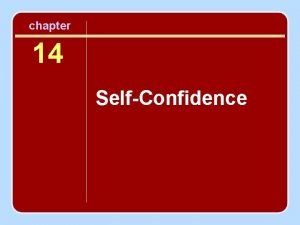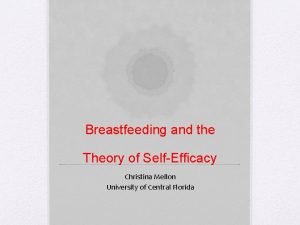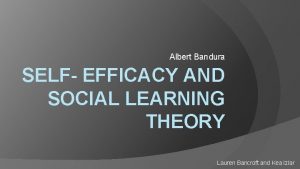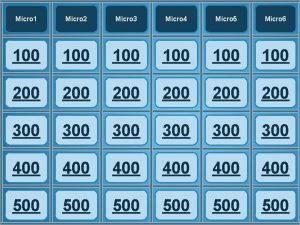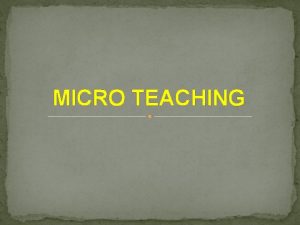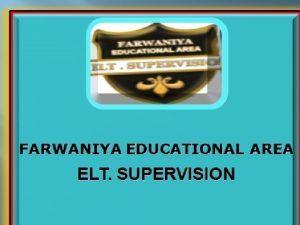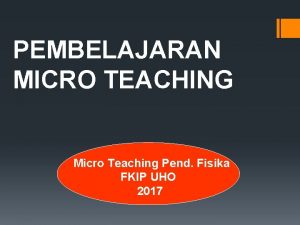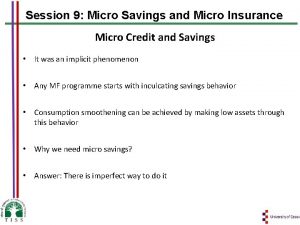Efficacy of Micro Teaching in Teacher Education R












- Slides: 12

Efficacy of “Micro Teaching” in Teacher Education; R. M. D. Rohan 2012/MPhil/16 Supervisor: Prof. M. Vithanapathirana

Background • Student teachers show weaknesses often in their teaching skills • One of the reasons for these weaknesses is that they do not have enough practical teaching opportunities. • When research on teacher education in international arena was reviewed “Micro Teaching” was understood as a productive method to develop individual teaching skills of prospective teachers

Objectives of the study To review theoretical background of ‘Micro Teaching. ’ To develop the questioning techniques of prospective teachers using ‘Micro Teaching. ’ To evaluate the efficacy of ‘Micro Teaching’ as a teacher training technique

Review of researcher objectives sample methodology findings relevance Abdurragaman, K (2010) To study the effect of LCMT on the development of teaching competencies Teacher candidates of Duzce University, Turkey Action research LCMT had positive effects on teaching behaviours, planning, & classroom management Research design & objectives Aubrey Golightl (2010) to assist teachertrainees in the planning, design, and implementation of learner-centered instruction in the classroom. Geography teacher trainees, North-West University, South Africa Case study By the end of the first semester 85% of the participants were positive regarding the presentation of micro lessons and only 15% still harbored negative feelings. Micro teaching Nandita Deb (2011) To find out the effectiveness of micro teaching skills in teaching geography at the secondary level Geography teachers and students An experimental study conducted at Rabindra Bharati university Micro teaching gave teachers positive teaching experience. Micro teaching

Sample/Participants The target population of the research is student teachers of English, studying at National Colleges of Education The research is conducted as an action research with 30 2 nd year students of 2013/2016 batch of Pasdunrata National College of Education The sample is a convenience sample consisting of 30 student teachers of English studying the subject Education Practice

Research Design The research attempts to develop the questioning techniques of student teachers using “Micro Teaching”. It tries to develop a syllabus model that can be used in the classroom to develop questioning techniques. Since it is an attempt in developing the classroom practice, the design is an Action Research.

Micro Teaching Cycle Check list – to evaluate the questioning techniques of student teachers, by supervisors Observation schedules – to record the questions & questioning techniques of student teachers by peer observers Audio taping – to record the post lesson discussions Semi structured observation schedule – to record the important incidents during the post lesson discussions

Micro Teaching Cycle (Singh, 2004) Modeling the skill Re-critique session Planning a micro lesson Reteaching session Teaching sessions Replanning sessions Critique sessions

Intervention of the research followed the ‘Micro Teaching’ cycle Certain adaptations to the ‘Micro Teaching’ cycle were made to suit the setting of the research A ‘Skill Plan’ was introduced to the planning stage because the existing Activity Plan did not focus on one particular teaching skill A new critique session was introduced after the ‘Modeling’ stage where videoed model lessons were shown

Findings/conclusions ‘Micro Teaching’ has been successful in developing the questioning techniques of prospective teachers. When the peer group acts as the students the responses became artificial. Therefore, using school children as students is suggested to have more authentic responses. Second cycle of the research has been planned to be conducted using school children as students The intervention is proposed to be repeated for another teaching skill to validate the findings of the research.

Reference Aggarwal, J. C. 2013. Essentials of Educational Technology. Innovations in Teaching – Learning. Dlhi, Vikas Publishing house Pvt. Ltd. Asking Questions to Improve Listening. The Teaching Center. Washington University. (2009)Retrieved fromhttp: //teachingcenter. wustl. edu/strategies/Pages/asking-questions. aspx on 12. 02. 2014 Innovations and Initiatives in Teacher Education in Asia and the Pacific Region. (1990). (Vol-II). Bangkok, UNESCO Principal Regional Office for Asia and the Pacific Lim, C. P. Cock, K. Lock, G. Innovative Practices in Pre-Service teacher education, An Asia-Pacific perspective. Australia, Curtin University of Technology. Professional Development among Academic Staff at Selected Malaysian Public Universities: Preliminary Findings of the Impact of the Basic Teaching Methodology Courses, International Journal of Business and Social Science 2(3) 2011. p. 125 Roy, P. Research Scholar. An Experimental Study to Find Out the Effectiveness of Some Micro Teaching Skills in Teaching Geography at the Secondary Level. West Bengal, Rabindra Bharati University. Singh, Y. K. 2004. Micro Teaching: Modified Syllabus of Indian Universities/ Training Institutes & Colleges. New Delhi, APH Publishing Corperation.

Thank you
 Collective teacher efficacy
Collective teacher efficacy Collective teacher efficacy
Collective teacher efficacy Collective teacher efficacy
Collective teacher efficacy Phases of microteaching
Phases of microteaching Measuring personality in organisational behaviour
Measuring personality in organisational behaviour What is role efficacy
What is role efficacy Therapeutic index
Therapeutic index Potency vs efficacy
Potency vs efficacy Nebido efficacy
Nebido efficacy Optimal self-confidence
Optimal self-confidence Christina mellon
Christina mellon Albert bandura self-efficacy
Albert bandura self-efficacy Vaccine efficacy
Vaccine efficacy




